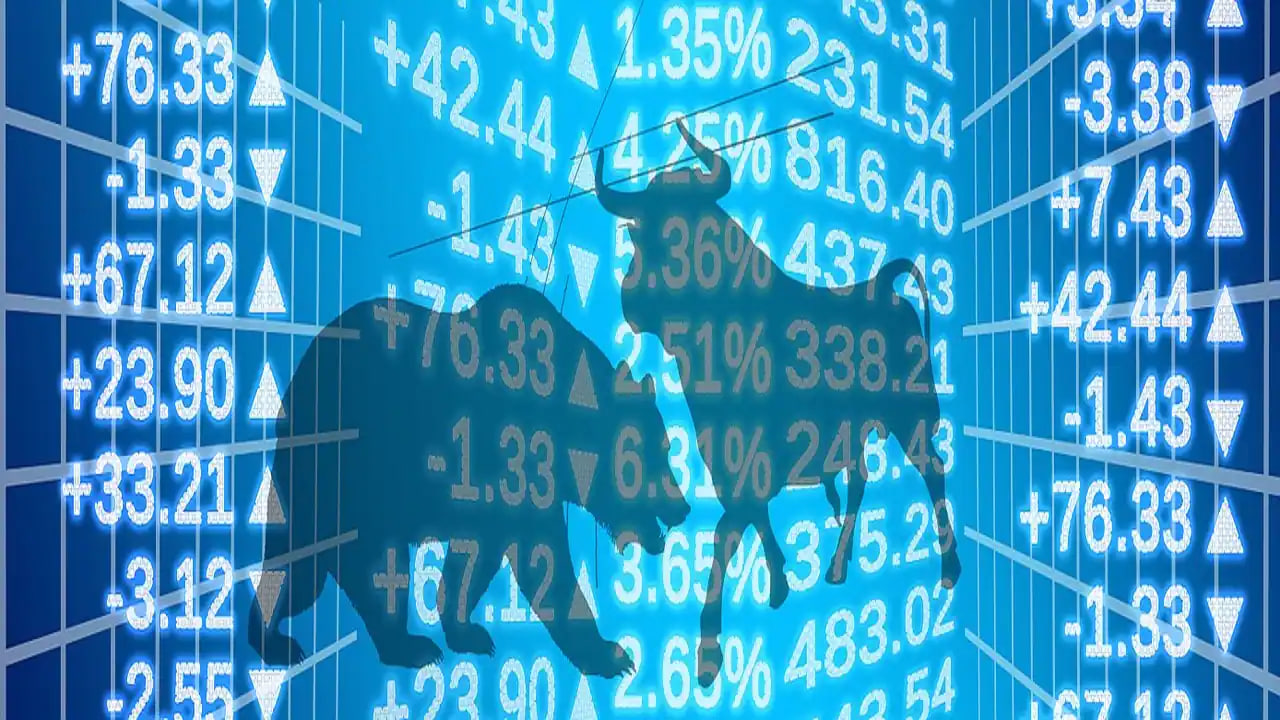Germany's Export Decline: A Deep Dive into the Economic Headwinds Facing Europe's Largest Economy
Meta Description: Germany's October export slump reveals a concerning trend. This in-depth analysis explores the root causes of the 2.8% decline, examines the implications for the German and European economies, and offers potential solutions. We delve into industry specifics, government policies, and the global competitive landscape to uncover the full picture. Keywords: German Economy, Exports, Economic Decline, Global Competitiveness, German Trade, European Economy, Volatility, Recession Risk.
Imagine this: Germany, the industrial powerhouse of Europe, the nation synonymous with precision engineering and high-quality goods, is facing a serious economic headwind. October's export figures, a staggering 2.8% drop both month-on-month and year-on-year, sent shockwaves through the financial markets. This isn't just a minor blip; it's a canary in the coal mine, a stark warning sign that the German economic engine is sputtering. This isn't some obscure economic indicator; this is a direct hit to a nation whose prosperity has long been tied to its export prowess. The implications ripple far beyond Germany's borders, impacting the entire European Union and, indeed, the global economy. We're not talking about abstract numbers here; we're talking about real people, real jobs, real communities facing uncertain futures. This detailed analysis will dissect the underlying causes of this alarming decline, exploring everything from waning global demand and intensifying competition to structural issues within the German economy itself. We'll examine the government's response, assess the potential long-term consequences, and, crucially, explore potential solutions to revitalize Germany's export sector and restore its economic dynamism. Prepare for a deep dive into the complexities of the situation, backed by data, expert opinions, and a healthy dose of real-world insights. Let's unravel the mystery behind this unsettling trend and uncover the path to a more resilient German economy.
German Exports: A Concerning Trend
The recent release of data from the German Federal Statistical Office (Destatis) revealed a troubling reality: Germany’s exports plummeted by 2.8% in October 2023, both compared to the previous month and the same period last year. This represents a significant blow to Germany’s export-oriented economy, traditionally a pillar of its strength and a crucial driver of European growth. This isn't just a statistical anomaly; it's a symptom of a deeper malaise affecting the German industrial landscape. The sheer magnitude of the decline should be a wake-up call, prompting serious introspection and decisive action.
The statement by Volkmar Treier, the head of foreign trade at the German Chambers of Commerce and Industry (DIHK), perfectly encapsulates the gravity of the situation: the German economy, heavily reliant on exports, is showing alarming signs of weakness. He explicitly points to a lack of competitiveness as a major contributing factor, emphasizing the urgent need for government intervention to reverse the trend. This isn't just about tweaking economic policies; it's about a fundamental reassessment of Germany's economic strategy in a rapidly evolving global landscape.
Analyzing the Decline: Key Factors
Several intertwined factors contribute to this worrying decline in German exports. These aren't isolated incidents; they're interconnected elements that collectively create a perfect storm for the German economy. Let's break them down:
1. Weakening Global Demand: The global economic slowdown, fueled by high inflation, rising interest rates, and geopolitical uncertainty, has significantly reduced demand for German goods. Consumers and businesses worldwide are tightening their belts, impacting demand across various sectors. This isn’t unique to Germany; many export-dependent economies are feeling the pinch. However, Germany's reliance on exports makes it particularly vulnerable.
2. Intensifying Global Competition: Germany faces stiff competition from other manufacturing powerhouses, particularly in Asia. Countries like China, with their lower labor costs and advanced manufacturing capabilities, are increasingly challenging Germany's dominance in various sectors. This competitive pressure necessitates innovation and adaptation, something that some German industries may be struggling with.
3. Supply Chain Disruptions: The lingering effects of the pandemic and the ongoing war in Ukraine continue to disrupt global supply chains. These disruptions cause delays, increased costs, and instability, significantly impacting German manufacturers' ability to meet global demand efficiently. This is not a new problem, but it's certainly exacerbating existing challenges.
4. Energy Crisis: The energy crisis triggered by the war in Ukraine has significantly increased energy costs for German businesses, impacting their competitiveness. Higher energy prices translate into higher production costs, making German goods less attractive in the global market. This is a substantial burden that needs immediate attention.
5. Bureaucracy and Regulation: Some argue that bureaucratic hurdles and stringent regulations within Germany hinder innovation and agility, making it more challenging for German businesses to adapt to the rapidly changing global landscape. Streamlining regulations and fostering a more business-friendly environment could significantly boost competitiveness.
Government Response and Policy Implications
The German government is aware of the severity of the situation and is exploring various policy options to address the export decline. However, effective solutions require a multifaceted approach going beyond short-term fixes. Here are some key areas requiring focused attention:
-
Investment in Innovation: Increased investment in research and development (R&D) is crucial for fostering innovation and developing new technologies that enhance Germany's global competitiveness. This includes supporting startups, fostering collaboration between academia and industry, and incentivizing the adoption of cutting-edge technologies.
-
Energy Transition and Security: Securing a reliable and affordable energy supply is paramount. Accelerating the transition to renewable energy while ensuring energy security is essential to reducing energy costs and improving the competitiveness of German industries.
-
Skills Development: Investing in education and skills development is critical to equip the workforce with the skills needed for the future economy. This includes digital skills, green technologies, and advanced manufacturing techniques. A skilled and adaptable workforce is essential for maintaining competitiveness.
-
Supply Chain Resilience: Diversifying supply chains and strengthening partnerships with reliable trading partners can mitigate the risks associated with global supply chain disruptions. This is not just about importing raw materials; it also involves securing strategic partnerships and investment in domestic production capacity.
-
Regulatory Reform: Streamlining regulations and creating a more business-friendly environment can encourage investment, innovation, and growth. This involves reducing bureaucratic barriers and promoting regulatory clarity and predictability.
Long-Term Outlook and Potential Solutions
The export decline presents a significant challenge, but it also presents an opportunity for Germany to reassess its economic strategy and build a more resilient and competitive economy for the future. This requires a long-term vision and a commitment to structural reforms. We cannot simply rely on short-term fixes; we need a sustained and coordinated effort to improve Germany's long-term prospects.
The Road Ahead: Restoring German Economic Dynamism
The path to restoring Germany's economic dynamism is paved with strategic investments, bold policy reforms, and a renewed commitment to innovation. Here’s a glimpse of what the future might hold:
-
Embracing Digitalization: Germany must fully embrace digital technologies to enhance productivity, streamline processes, and create new opportunities for growth. This involves investing in digital infrastructure, fostering digital skills, and promoting the adoption of digital technologies across all sectors.
-
Green Transition Leadership: Germany's commitment to sustainability can be a source of competitive advantage. By investing in green technologies and becoming a leader in the global green transition, Germany can attract investment, create new jobs, and enhance its global standing.
-
Strengthening International Partnerships: Collaborating with other countries, particularly within the EU, is crucial for addressing challenges and strengthening Germany's position in the global economy. This involves fostering trade partnerships, promoting technological collaboration, and working together to address global economic challenges.
Frequently Asked Questions (FAQ)
Q1: How severe is Germany's export decline?
A1: The 2.8% decline in October 2023 is significant, marking a considerable setback for Germany's export-dependent economy. It's not just a single-month dip; it reflects underlying structural issues requiring comprehensive solutions.
Q2: What are the main causes of the decline?
A2: Several factors contribute, including weakening global demand, increased global competition, supply chain disruptions, the energy crisis, and potentially bureaucratic hurdles. These factors are interconnected and exacerbate each other.
Q3: What is the German government doing to address the problem?
A3: The government is exploring various policy options, including investments in innovation, energy transition, skills development, supply chain resilience, and regulatory reform. However, the effectiveness of these measures remains to be seen.
Q4: How will this affect the European economy?
A4: Germany's economic health significantly impacts the EU as a whole. A struggling German economy has ripple effects across the continent, affecting trade, investment, and overall economic growth.
Q5: What can German businesses do to improve their competitiveness?
A5: Businesses need to invest in innovation, embrace digitalization, adopt sustainable practices, and streamline their operations to improve efficiency and reduce costs. Adapting to the changing global landscape is crucial.
Q6: What is the long-term outlook for the German economy?
A6: The long-term outlook depends on the effectiveness of government policies and the ability of German businesses to adapt and innovate. A proactive and comprehensive approach is needed to ensure a positive trajectory.
Conclusion: Navigating the Challenges, Seizing the Opportunities
Germany's export decline is a serious challenge, but it's not insurmountable. By addressing the underlying causes, implementing effective policies, and fostering innovation, Germany can navigate these headwinds and emerge stronger. The road ahead requires a concerted effort from the government, businesses, and the workforce. This isn't just about economic numbers; it's about securing the future of Germany's prosperity and its role in the global economy. The time for decisive action is now. Failure to act decisively will only prolong the pain and diminish Germany’s global influence. The window of opportunity for reform is open; seizing it will be crucial for Germany’s future.



